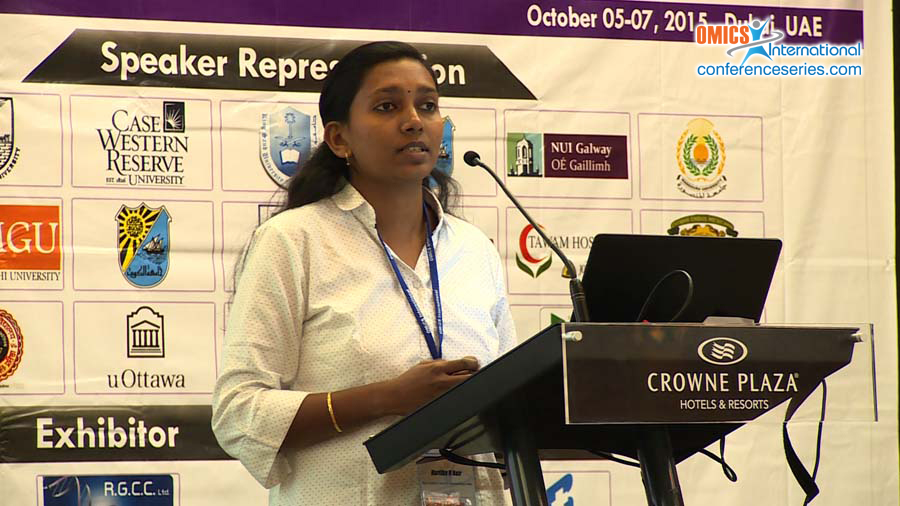
Haritha H Nair
Rajiv Gandhi Centre for Biotechnology, India
Title: Thymidylate synthase-dependent down-regulation of NF-κB is the pivotal signaling mechanism regulating curcumin-mediated chemo-sensitization of breast cancer cells to 5-FU
Biography
Biography: Haritha H Nair
Abstract
Breast cancer is always a mystifying puzzle owing to the wide contrast in its responsiveness to treatments. Most of the currently available chemotherapeutics against breast cancer fail to confer the maximum clinical efficacy because of the adverse side effects and gradual development of chemo-resistance, which they induce by up-regulation of various survival signals and multi-drug resistance genes. Chemo-sensitization can be a choice that absolutely matches the need. Several phyto-chemicals has been reported to modulate multiple pathways involved in chemo-resistance when used in combination with conventional chemotherapeutics and are preferred over other compounds because of their pharmacological safety. Previous in vitro studies conducted in the lab have shown that a combination of 10µM curcumin and 10µM 5-Fluorouracil (5-FU) can bring down the amount of the chemotherapeutic needed for inducing apoptosis in breast cancer cells, independent of their receptor status. The study also found that curcumin down-regulates several survival signals, including Thymidylate synthase (TS), the key enzyme for de novo synthesis of DNA whose over-expression in cancer cells leads to 5-FU chemo-resistance. We also observed that curcumin is capable of down regulating several survival signals like Akt, MAPKs and NF-κB, which are found to be up-regulated by 5-FU when given alone. Moreover, curcumin induces apoptosis in breast cancer cells by regulating Bcl-2, Bcl-XL, survivin and caspases. However, the pivotal molecule which regulates the synergism was unclear. The present study was intended to identify the key regulatory molecule and the signaling events that regulate the synergism.

